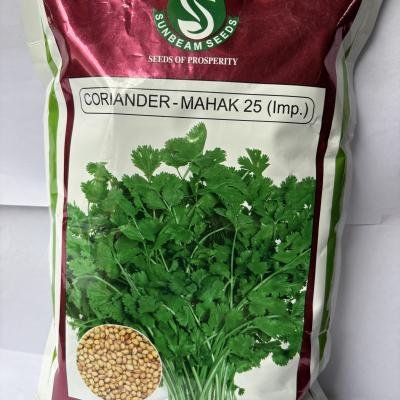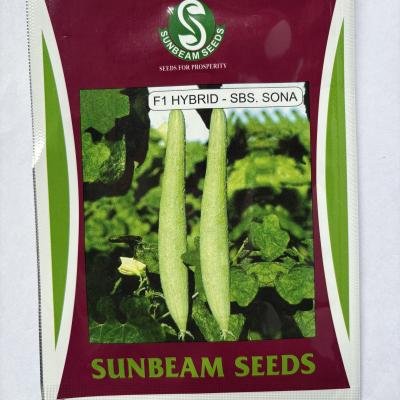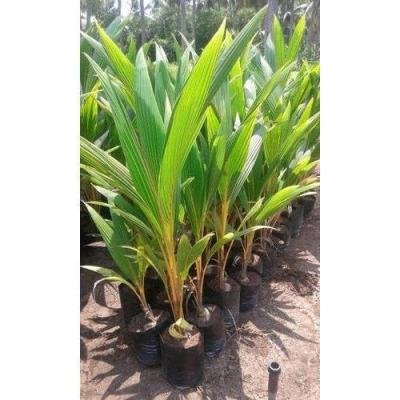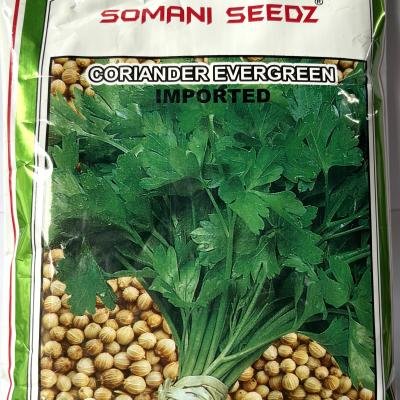Organic vs Hybrid Seeds: Which is Better for Your Kitchen Garden or Farm?
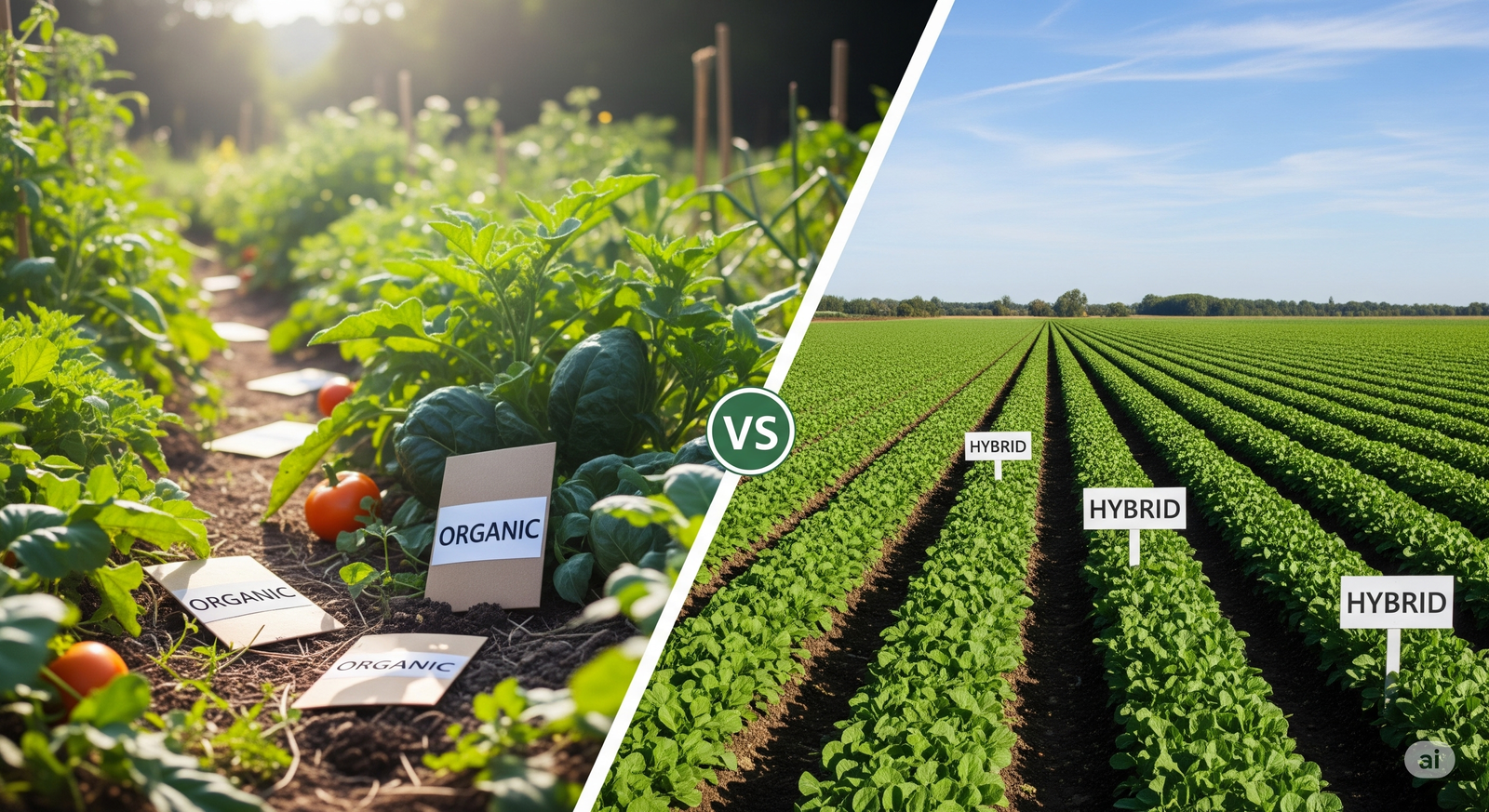
What Are Organic and Hybrid Seeds?
With so many seed varieties available, choosing between organic and hybrid seeds can be confusing. Let’s break it down:
✅ Organic Seeds
These are naturally grown seeds without any chemicals or genetic modification. They're perfect for:
- Sustainable farming
- Organic food lovers
- Home kitchen gardens
Pros:
- Environmentally friendly
- Better taste & nutrition
- Save and reuse seeds
Cons:
- Lower yield than hybrid
- May require more care
🔬 Hybrid Seeds
Hybrid seeds are created by cross-breeding two plants to enhance desired traits like yield, color, and disease resistance.
Pros:
- High yield
- Uniform quality
- Pest/disease resistance
Cons:
- Can’t be reused next season
- Slightly expensive
- Sometimes less flavorful than desi varieties
🌿 Which One Should You Choose?
| Purpose | Best Choice |
|---|---|
| Kitchen Garden | Organic Seeds |
| Commercial Farming | Hybrid Seeds |
| Home Terrace Garden | Organic or Mix |
| Monsoon Crops | Hybrid Seeds |
If you care about sustainability, go for organic seeds.
If you need maximum output, go for hybrid.
🌾 Best-Selling Seeds in Each Category
🔹 Organic Seeds:
- Cauliflower (Khushi Organic)
- Palak (Desi Spinach)
- Coriander (Dhaniya)
🔹 Hybrid Seeds:
- SKS Bhindi
- Top 85 Maize
- F1 Wonder Red Carrot
➡️ [Shop Now: Organic & Hybrid Seeds Collection]
💬 Final Words
Both seed types have their role. Whether you’re a small home grower or a commercial farmer, it’s important to choose seeds based on your goals, budget, and growing conditions.
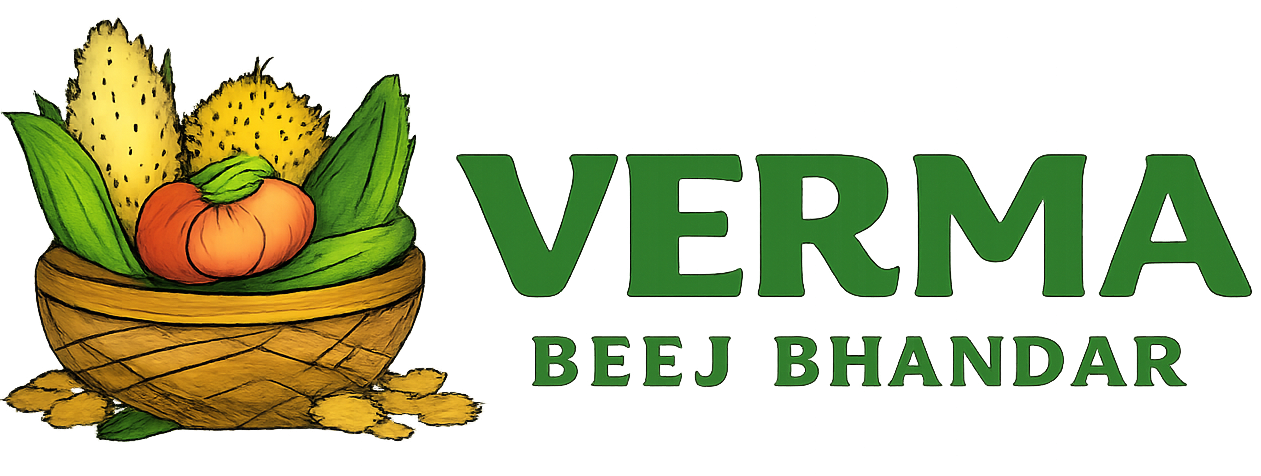





 Bhindi
Bhindi
 Bitter Gourd
Bitter Gourd
 Beetroot
Beetroot
 Bottle Gourd
Bottle Gourd
 Brinjal
Brinjal
 Cabbage
Cabbage
 Carrot
Carrot
 Cauliflower
Cauliflower
 Chilli
Chilli
 Cucumber
Cucumber
 Palak
Palak
 Tomato
Tomato
 Watermelon
Watermelon
 Coriander
Coriander
 Peas
Peas
 Ridge Gourd
Ridge Gourd
 Cowpea
Cowpea
 Yard Beans
Yard Beans
 Sponge Gourd
Sponge Gourd
 Onion
Onion
 Fruits Plant
Fruits Plant
